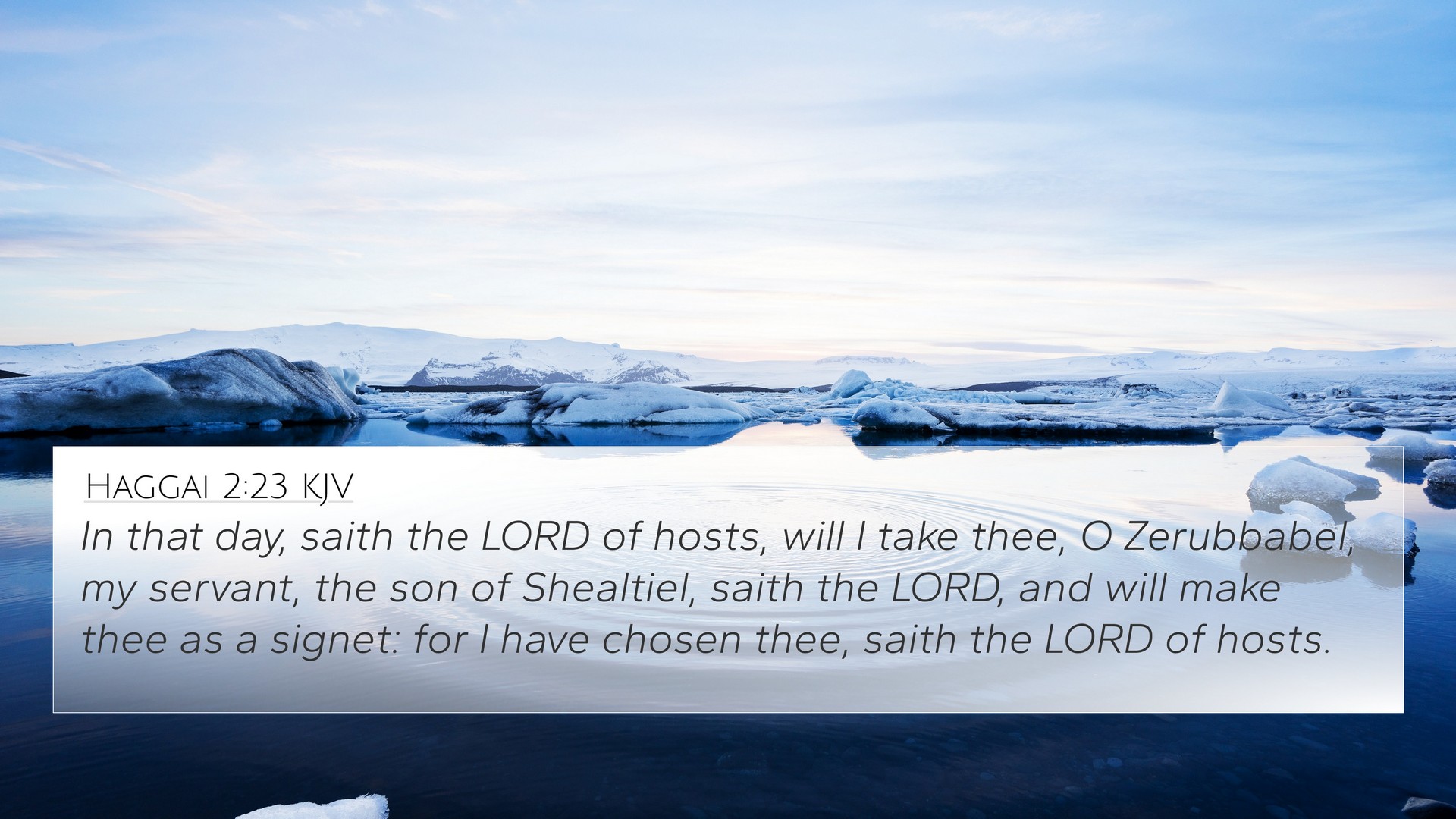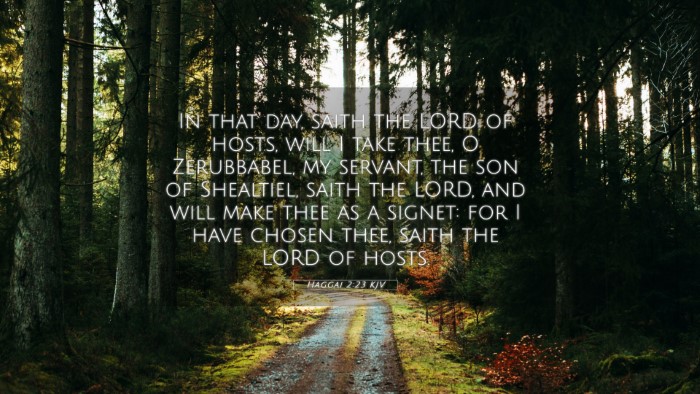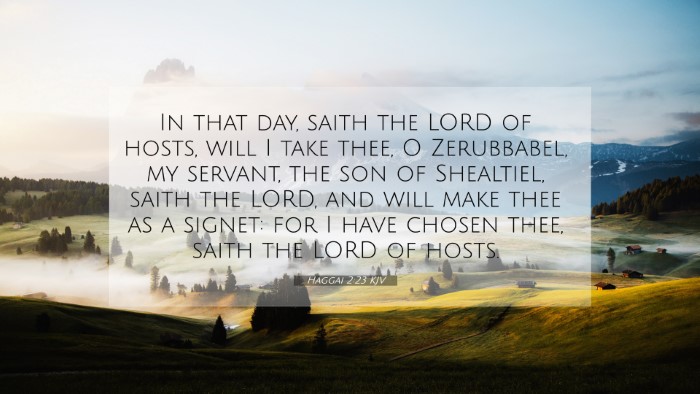Old Testament
Genesis Exodus Leviticus Numbers Deuteronomy Joshua Judges Ruth 1 Samuel 2 Samuel 1 Kings 2 Kings 1 Chronicles 2 Chronicles Ezra Nehemiah Esther Job Psalms Proverbs Ecclesiastes Song of Solomon Isaiah Jeremiah Lamentations Ezekiel Daniel Hosea Joel Amos Obadiah Jonah Micah Nahum Habakkuk Zephaniah Haggai Zechariah MalachiHaggai 2:23 Similar Verses
Haggai 2:23 Cross References
In that day, saith the LORD of hosts, will I take thee, O Zerubbabel, my servant, the son of Shealtiel, saith the LORD, and will make thee as a signet: for I have chosen thee, saith the LORD of hosts.
Uncover the Rich Themes and Topics of This Bible Verse
Listed below are the Bible themes associated with Haggai 2:23. We invite you to explore each theme to gain deeper insights into the Scriptures.
Haggai 2:23 Cross Reference Verses
This section features a detailed cross-reference designed to enrich your understanding of the Scriptures. Below, you will find carefully selected verses that echo the themes and teachings related to Haggai 2:23 KJV. Click on any image to explore detailed analyses of related Bible verses and uncover deeper theological insights.
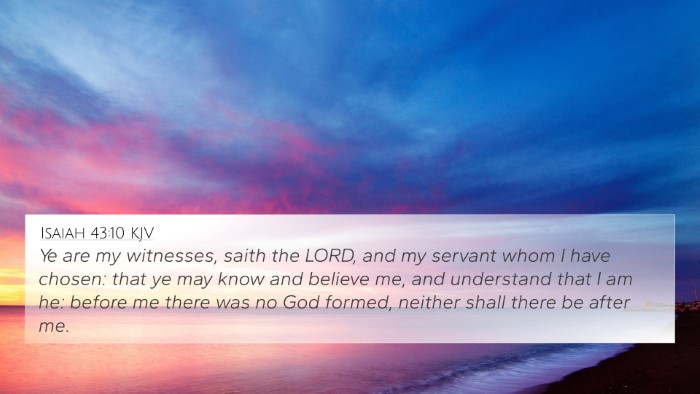
Isaiah 43:10 (KJV) »
Ye are my witnesses, saith the LORD, and my servant whom I have chosen: that ye may know and believe me, and understand that I am he: before me there was no God formed, neither shall there be after me.
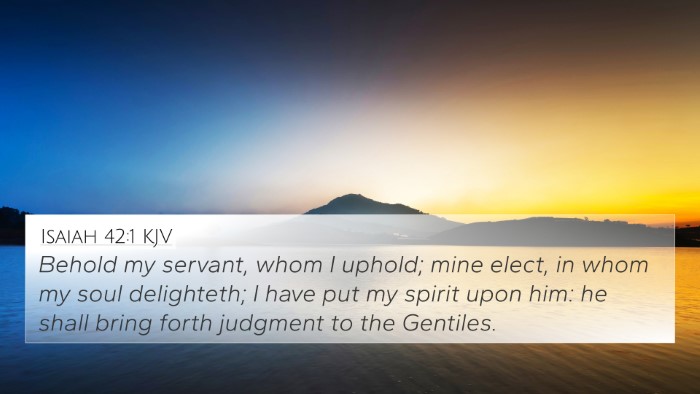
Isaiah 42:1 (KJV) »
Behold my servant, whom I uphold; mine elect, in whom my soul delighteth; I have put my spirit upon him: he shall bring forth judgment to the Gentiles.
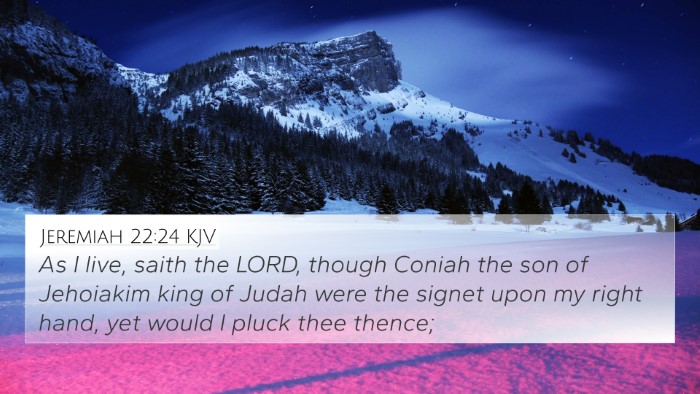
Jeremiah 22:24 (KJV) »
As I live, saith the LORD, though Coniah the son of Jehoiakim king of Judah were the signet upon my right hand, yet would I pluck thee thence;
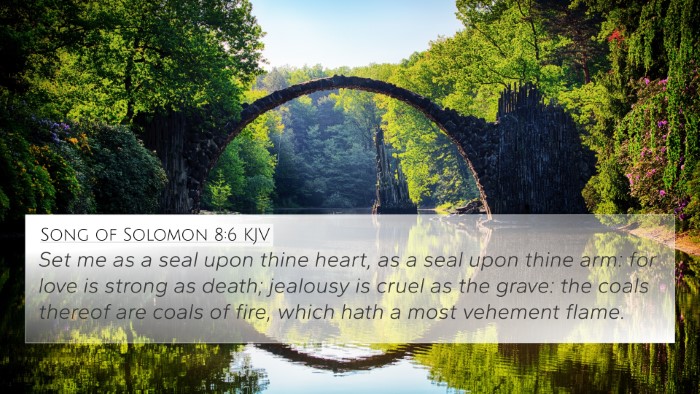
Song of Solomon 8:6 (KJV) »
Set me as a seal upon thine heart, as a seal upon thine arm: for love is strong as death; jealousy is cruel as the grave: the coals thereof are coals of fire, which hath a most vehement flame.
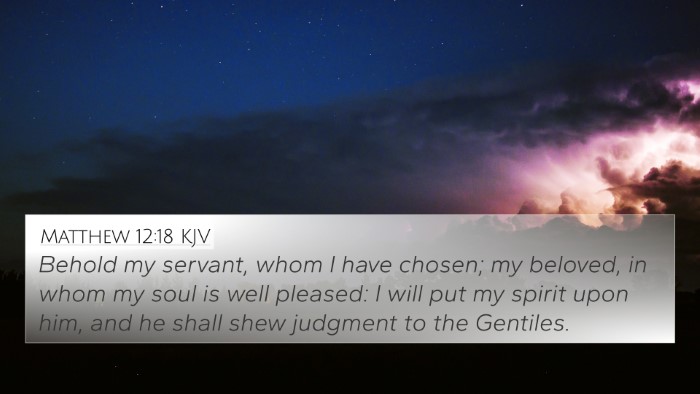
Matthew 12:18 (KJV) »
Behold my servant, whom I have chosen; my beloved, in whom my soul is well pleased: I will put my spirit upon him, and he shall shew judgment to the Gentiles.
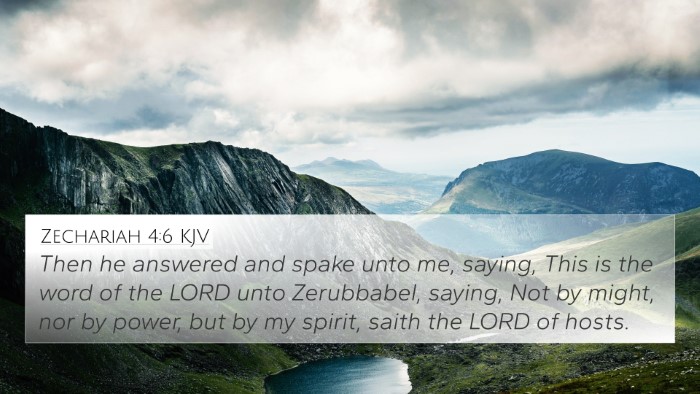
Zechariah 4:6 (KJV) »
Then he answered and spake unto me, saying, This is the word of the LORD unto Zerubbabel, saying, Not by might, nor by power, but by my spirit, saith the LORD of hosts.
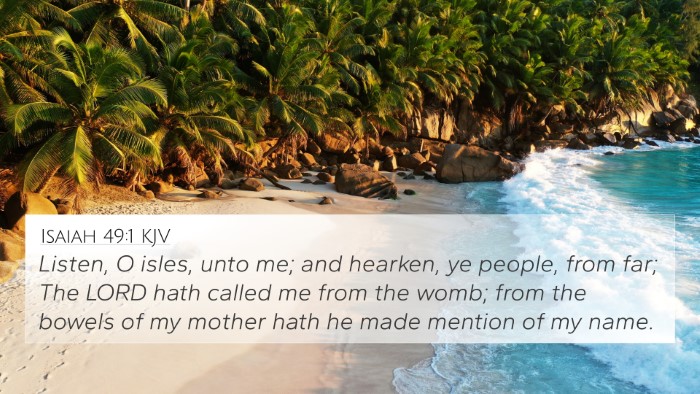
Isaiah 49:1 (KJV) »
Listen, O isles, unto me; and hearken, ye people, from far; The LORD hath called me from the womb; from the bowels of my mother hath he made mention of my name.

John 6:27 (KJV) »
Labour not for the meat which perisheth, but for that meat which endureth unto everlasting life, which the Son of man shall give unto you: for him hath God the Father sealed.
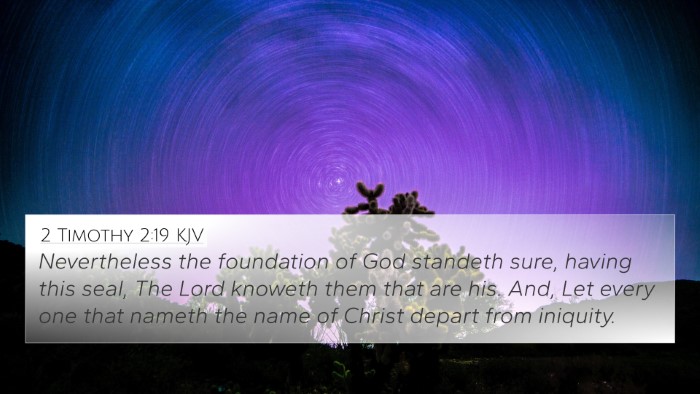
2 Timothy 2:19 (KJV) »
Nevertheless the foundation of God standeth sure, having this seal, The Lord knoweth them that are his. And, Let every one that nameth the name of Christ depart from iniquity.
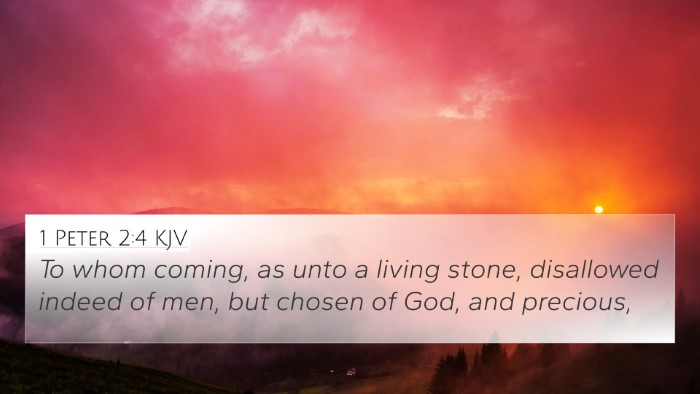
1 Peter 2:4 (KJV) »
To whom coming, as unto a living stone, disallowed indeed of men, but chosen of God, and precious,
Haggai 2:23 Verse Analysis and Similar Verses
Understanding Haggai 2:23
The verse Haggai 2:23 states:
"On that day, declares the Lord Almighty, I will take you, my servant Zerubbabel son of Shealtiel, declares the Lord, and I will make you like my signet ring, for I have chosen you," says the Lord Almighty.
Contextual Analysis
In this passage, Haggai speaks to Zerubbabel, the governor of Judah, during the time of the rebuilding of the Temple after the Babylonian exile. The verse emphasizes God's choice of Zerubbabel and symbolizes the restoration of Israel's leadership and covenantal relationship with God.
Significance of the Signet Ring
The metaphor of a signet ring:- It represents authority and identity.
- In ancient times, a signet ring was used to seal documents, signifying ownership and authenticity.
- By likening Zerubbabel to a signet ring, God reaffirms His commitment to His people through their leader.
Theological Implications
This verse highlights several key theological themes:
- Divine Election: God chooses His leaders and establishes His plans through them, as seen in the selection of Zerubbabel.
- Covenant Relationship: The reference to the signet ring signifies God's ongoing covenant with Israel, assuring them of His presence and promise.
- Hope and Restoration: Amid their struggles, this proclamation brings hope to the people of Judah, solidifying their identity as God's chosen people.
Connections and Cross-References
Haggai 2:23 has several crucial biblical cross-references that enhance its meaning and context:
- Jeremiah 22:24-30 - Discusses the significance of the signet ring in David's lineage.
- Zechariah 4:6-10 - Highlights the role of Zerubbabel in the construction of the Temple and God's strength in accomplishing His purposes.
- Matthew 1:12-16 - The genealogy of Jesus Christ connects back to Zerubbabel, linking the Old Testament to New Testament fulfillments.
- Revelation 5:5 - The Lion of the tribe of Judah reflects the royal lineage established from David, connecting back to God’s promise to Zerubbabel.
- Isaiah 22:20-22 - Speaks of God’s selection of Eliakim, paralleling the choice of Zerubbabel as a steward of the nation.
- Romans 11:1-5 - Discusses God’s faithfulness in preserving a remnant, akin to the preservation of Zerubbabel’s line.
- Hebrews 12:22-24 - Connects believers to the heavenly Jerusalem, strengthening the theme of hope and restoration found in Haggai.
- Luke 3:27 - Another aspect of the genealogy that reinforces the Messianic line through Zerubbabel.
Practical Applications
This scripture invites believers to:
- Recognize God’s sovereignty: Understand that God orchestrates history through chosen leaders for His divine plans.
- Trust in God’s promises: Feel reassured that despite challenges, God actively works towards restoration and hope.
- Embrace their identity: As believers, recognize that they are part of God’s chosen people, akin to how Zerubbabel was chosen.
Conclusion
In conclusion, Haggai 2:23 serves as a reminder of God's fidelity to His people, His chosen leaders, and His eternal plans. The rich imagery of the signet ring invites a deeper understanding of our identity in God’s redemptive narrative. Through cross-referencing this verse with related scriptures, one uncovers a broader theological framework and gets a clearer picture of God's works throughout the Bible.
